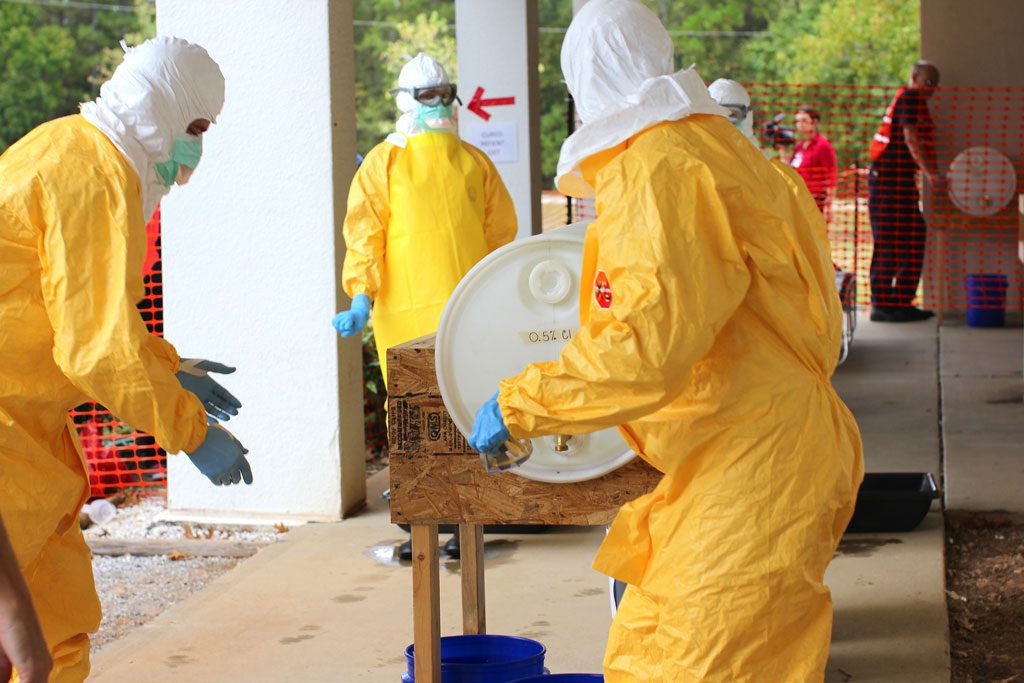Government Accountability Office highlights ongoing federal challenges in implementing the National Biodefense Strategy, strengthening preparedness and national biosurveillance, and acquiring biodetection technologies.
Biological threats, such as the COVID-19 pandemic, can cause catastrophic loss of life and damage
to the economy.
The 2018 National Biodefense Strategy outlines goals and objectives to help prepare for and respond to such threats. However, the Department of Homeland Security (DHS) has long faced challenges implementing its biodefense responsibilities, including acquiring biodetection capabilities.
GAO made 29 recommendations in its prior reports to address the challenges discussed in this statement. As of January 2022, agencies have taken steps to address the recommendations, but 25 of the 29 remain open. GAO continues to monitor agency progress in implementing them.
This statement discusses GAO reports issued from December 2009 through August 2021 on efforts to implement the National Biodefense Strategy and strengthen biodefense preparedness, as well as ongoing challenges to DHS’s biosurveillance and biodetection efforts. The statement also includes
recommendation follow-up work conducted through January 2022.
What GAO Found
For over a decade, GAO has conducted work evaluating federal biodefense efforts and has identified challenges and opportunities for improvement in several key areas:
- Implementing the National Biodefense Strategy. In February 2020, GAO found that challenges with data collection and assessment and decision-making across the biodefense enterprise could limit successful Strategy implementation. GAO recommended four actions, including that the Department of Health and Human Services, which coordinates interagency Strategy efforts, work with agencies to better define roles and responsibilities. The agency agreed and is taking steps to address these recommendations.
- Strengthening Biodefense Preparedness. In August 2021, GAO reported that key federal agencies, including the Department of Homeland Security (DHS), had developed interagency response plans and conducted exercises to prepare for biological incidents in the years prior to the COVID-19 pandemic. However, GAO found that the nation lacked certain elements necessary in preparing for biological incidents, including an interagency process to communicate priorities for conducting biodefense exercises. Further, GAO found that agencies did not routinely work together to monitor results from exercises and real-world incidents to identify patterns and root causes for systemic challenges. GAO recommended 16 actions, including that DHS and other agencies better identify root causes and the agencies responsible for addressing them. The agencies generally agreed with these recommendations and are taking steps to implement them.
- Strengthening DHS’s National Biosurveillance Integration Center (NBIC). GAO has reported that NBIC—created to integrate data across the federal government to enhance detection and situational awareness of biological events—has experienced longstanding challenges related to its lack of a clear purpose and limited collaboration with other agencies. DHS implemented GAO’s past recommendations to strengthen NBIC, However, in 2015 GAO found NBIC continued to face challenges, such as limited partner participation in the center’s activities. GAO identified options that could address these challenges, ranging from strengthening the center’s ability to implement its current roles to repealing NBIC’s statute. GAO plans to initiate work to assess NBIC’s more recent efforts.
- Acquiring Biodetection Technologies. GAO has reported on challenges with DHS efforts to implement its BioWatch program to detect an aerosolized biological attack. Most recently, GAO reported in May 2021 on DHS’s current effort to replace BioWatch, known as BD21. For example, GAO found that BD21 faces challenges due to technology limitations and uncertainties with combining technologies for use in biodetection, including possible false alarms. GAO recommended three actions, including that the BD21 program office conduct technology readiness assessments that follow GAO’s best practices prior to the program’s future acquisition decision. DHS agreed with these recommendations and is taking steps to address them.
Biodefense: Opportunities to Address National Strategy and Programmatic Challenges. U.S. Government Accountability Office, 17 February 2022.



